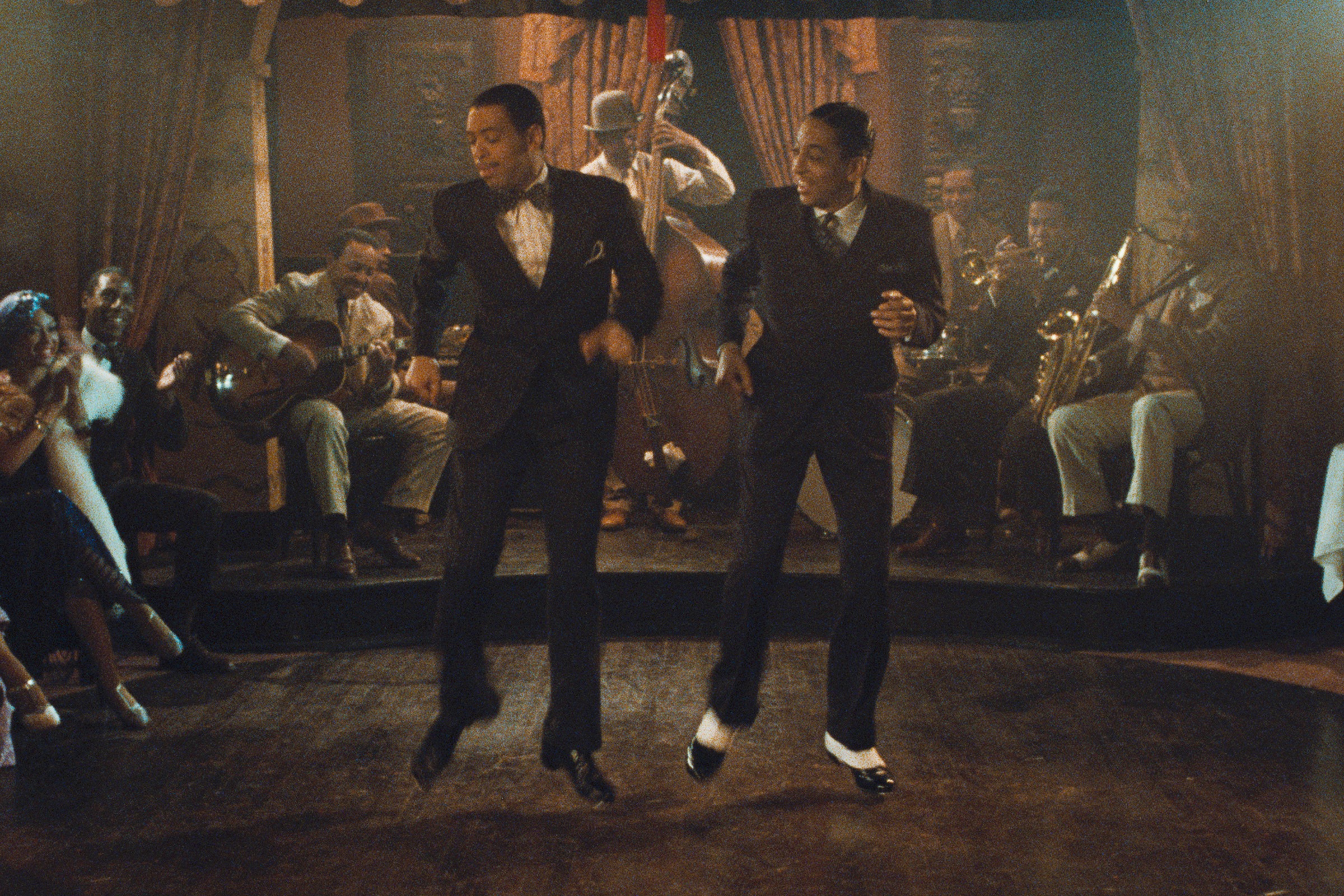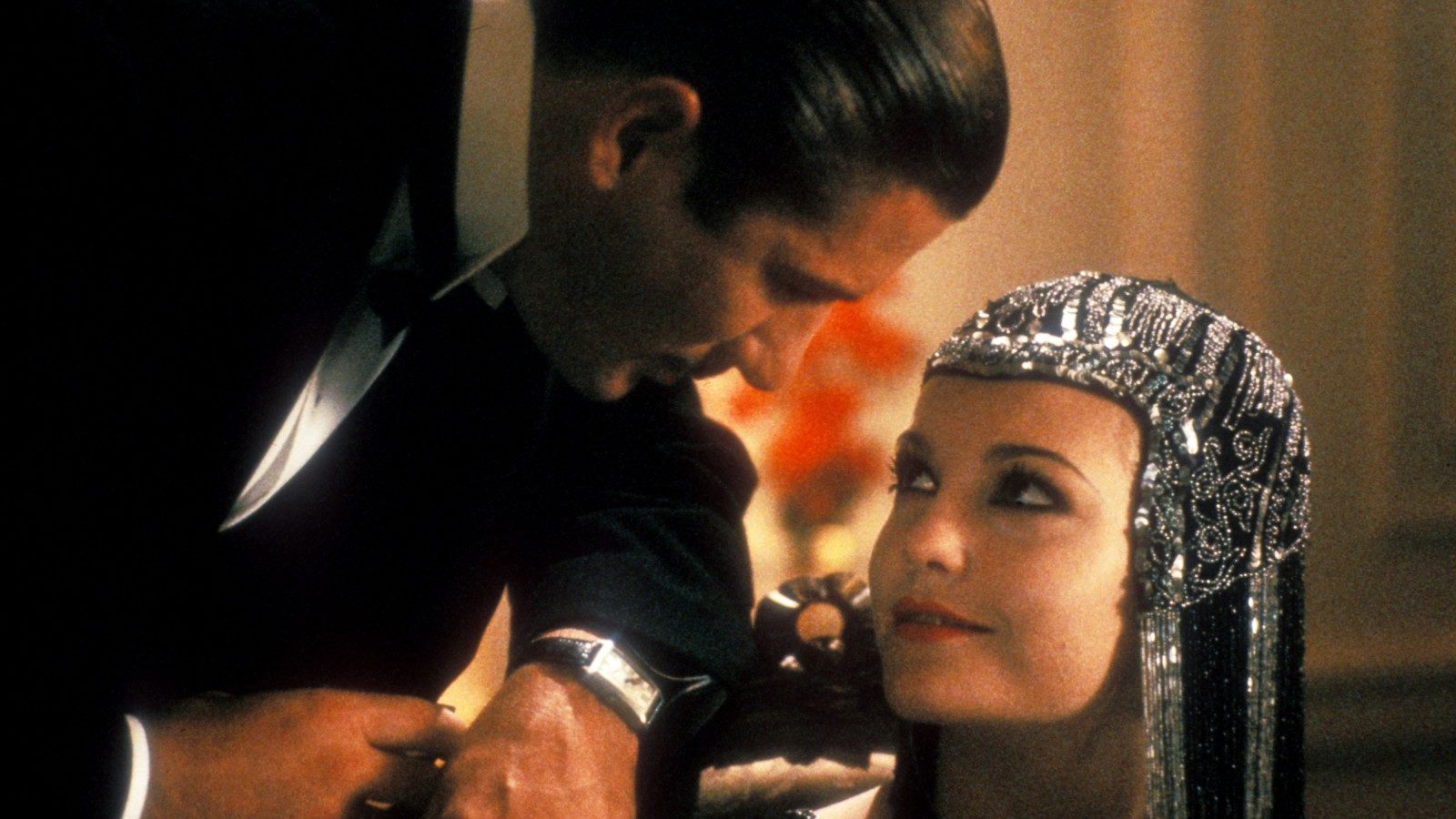The Cotton Club Encore Retouches Coppola’s Overwrought Epic
Published in Cinema Skyline, Vol. 5 (October–November 2019)

The Cotton Club (1984) was Francis Ford Coppola’s tumultuous twelfth feature, or fourteenth if you count his uncredited work in the softcore porn industry. Roundly panned as inchoate upon the release, it has been granted an encore at this year’s New York Film Festival – by which I mean an extra half hour, a one-off event screening, and the retitling, literally, to include the word ‘Encore.’ I sat in the center of the Alice Tully’s upper mezzanine to catch the revamped premiere, a sprawling quasi-musical about mobsters, race, love, and dance set in the famed eponymous Harlem jazz club of the 1920s and 30s. Directly to my left was a dreadlocked man in a three-piece suit who seemed to have encyclopedic and sometimes personal knowledge of every Black performer to make an appearance in the vast ensemble. I know this because he exclaimed in recognition at nearly every scene, in addition to making a grrrratata noise during instances of racialized violence (not uncommon to Encore). This was probably the most enjoyable way to watch the film. To my right, at the end of the row, sat the inimitable director himself, watching his thirty-five-year-old progeny with an unreadable expression.
What’s the deal with Coppola? His is one of the most singular stories of contemporary cinematic history; and one of the most variegated. The patriarch of a prolific dynasty within the world of American movies—including his daughter, Sophia, and distant cousins from Nicolas Cage to Jason Schwartzman—at this point the 80-year old director seems more focused on his winemaking than his production influence. Perhaps the eminent auteur of post-nuclear Hollywood, his most well-known works are required viewing for anyone who thinks they like movies. But his periphery stretches wide, and his lesser films (Dementia 13, Tetro, Jack) usually fall outside the wheelhouse of even the heartiest film buffs.
The Cotton Club is set somewhere in between these poles, though it could in many ways be the director’s signature film. Coppola, who has done practically everything at this point, is best known for mythologizing the cosa nostra, but his passion for musicals and show business is a through-line for his work. His uncle—who attended the NYFF screening at age 102—was behind the production of My Fair Lady which gave Julie Andrews her start, and Coppola’s earliest success was with a late-era Fred Astaire feature. Cotton Club is mobsters meets tap-dance. The director also got his start working as an uncredited director for botched developments, and that’s certainly the story of this film, which Roger Ebert described at the time as “one of the most troubled productions in recent movie history.”
Originally, he was hired as a script doctor for producer Robert Evans, who was vaguely interested in making a period piece about the famously segregated Harlem jazz club, which thrived on African-American talent while closing its doors to Black patrons. Richard Gere had signed on to lead, on the conditions that he didn’t play a mobste and was given a platform to present his real-life skills as a jazz cornetist. Given that the real life Cotton Club never allowed a single white musician in their band, this proved problematic to realize. Convinced of the ensemble’s tremendous talent, Coppola found himself writing a new story from the ground up, with William Kennedy and Mario Puzo, and coming onboard as the official director after Evans got overwhelmed—all the while fighting the latter’s naysaying as he remained a primary producer. By the time The Cotton Club hit theaters, it’s gregarious cast, robust budget, and sheer running time was the stuff of legend. Like Apocalypse Now (1979), there were apparently hours of usable footage for every minute in the cut.

Some of that mythic unseen footage is given a resurrection in Encore, now in limited run following its premiere at NYFF. Given the fractious response it got initially, the jury is still out on whether these missing minutes will make a memorable difference for viewers. Coppola’s revisited epic is both artfully shot and totally lacking in coverage, and the sense of a half-constructed period, poetically present yet hardly articulated, is as strong here as it is in overzealous works like the original Blade Runner or Godard’s Alphaville.
The performances are similarly lopsided; Cotton Club represents one of the richest displays of cabaret talent to ever be captured on film, itself a throwback to classic Hollywood movies that considered a reel of direct entertainment, in the form of song and dance, obligatory. This talent alone makes the film worth watching, and it’s clear that the Black performers who delivered such were deeply underappreciated for their work. There are a tremendous number of memorable small roles, including early appearances by Cage and Lawrence Fishburne, as well as iconic performances by character actors Bob Hoskins and Fred Gwynne. The hubristic Gere and his feeble femme fatale, Diane Lane, are totally unequipped by comparison to carry the show, even if both were in their role of a lifetime. We are left with a movie with a ton of surface and not much core—objectively some of Coppola’s best montage and camera work, yet desperately short of cohering.
What comes through most clearly in Encore is the presence of genius under duress: a baroque quality, as exhaustive as it is exhausting. ︎